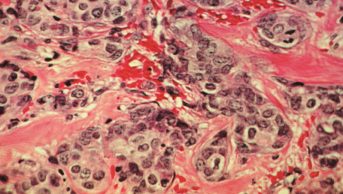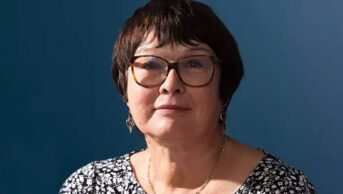
Nick Oliver
The National Institute for Health and Care Excellence (NICE) in England, the Scottish Medicines Consortium (SMC) and the All-Wales Medicines Strategy Group (AWMSG) are each charged with making recommendations on which new medicines to fund in their respective countries. Many experienced pharmacists, doctors and other healthcare professionals are involved in and commit time to these processes. All three bodies are highly regarded internationally for the quality and rigour of their work, and all use similar methods to assess the clinical and economic evidence for a medicine in order to reach a conclusion on its value. Yet when these agencies choose not to recommend funding for a medicine, the decision can be met with widespread dissatisfaction from the pharmaceutical industry, healthcare professionals, patient advocacy groups and even politicians. It is obvious that any decision not to fund a new medicine will be unpopular with those directly affected, but the criticism often implies that the fundamental assessment of value is flawed.
This is because the underlying decision-making framework is based on many untested assumptions about what members of society value. It is not the exclusive role of clinical experts to set this framework, it is a collective responsibility as citizens and current or future patients. We need to come together for some difficult conversations.
Value for money
Although often accused of being focused purely on cost-containment and the affordability of new medicines, NICE, the SMC and the AWMSG are, in fact, primarily interested in value-for-money, as opposed to total costs. They weigh up the clinical benefits of new medicines against their costs, assessing their cost effectiveness to make sure that money is spent wisely and efficiently. These decisions are important because annual budgets in the NHS are limited. Any money spent unwisely or inefficiently will lead to other treatments of proven benefit not being provided, known as the opportunity cost of the use of a new medicine. Of course, if the NHS was allocated more money it would be able to make available more options and treatments, but there will always be a budget limit. It will never be possible to fund every treatment and so there will always be a requirement to use funding to the greatest effect.
The opportunity cost becomes more of an issue when the total cost of a new medicine is high. Until recently total cost was rarely an issue for the NHS. However, recent examples of medicines to treat hepatitis C and for pre-exposure prophylaxis of HIV infection have created situations where medicines appear to offer value for money but the NHS cannot always afford to pay for all eligible patients to access them. They are cost-effective interventions that may not be affordable. This throws the question of societal values into sharp relief: we must help the NHS decide how to evaluate and where to incur the opportunity costs. Who do we want to benefit from new medicines, and what health benefits are we willing to sacrifice in order to achieve this?
Singling out certain diseases
NICE, the SMC and the AWMSG work from the principle that UK society wishes to derive benefits from new medicines equally across the population, with no discrimination in favour of, or against, any group of patients. For example, improved health in older patients is valued as much as in younger patients, prevention of illness is as highly valued as its treatment, and no disease areas are regarded as more or less worthy of treatment than others. Although this approach is highly equitable, and completely defensible, it is the very decisions made within this framework that come in for criticism.
The framework itself is rarely formally questioned, but some workarounds have arisen that cast doubt on the underlying principles involved. In 2008, the health secretary John Reid asked NICE to adopt a more generous approach to ‘end-of-life’ medicines, implicitly valuing the health benefits of these medicines more highly than similar benefits from medicines used earlier in the course of a disease[1]
. The Cancer Drugs Fund in England makes medicines available that have not met the cost-effectiveness criteria during NICE assessment, potentially displacing treatments that are more cost-effective[2]
. As the name suggests, it is restricted to cancer medicines, implying that these are a ‘special case’ and worthy of exceptional funding not available in other diseases, even those, such as heart failure, with similarly poor outcomes. The SMC has a Patient and Clinician Engagement process that is applied to medicines for rare diseases (orphan diseases or equivalent), again making these conditions a ‘special case’[3]
. The possible ‘ethical imperative’ of aiming to provide treatment where there are no other options (sometimes known as the ‘rule of rescue’) may come into play in these situations.
However, the justification for singling out certain diseases or clinical situations is often not based on a clear rationale. These processes have generally come about because of external pressures on the assessment organisations resulting from adverse publicity that has been triggered by individual decisions. There has been tacit acceptance that the changes made match the views of UK society, yet there has been no exploration of whether that is, in fact, the case. The limited evidence that there is[4]
suggests that the general public do not favour cancer over other diseases, end-of-life treatments over other interventions[5],[6]
, or place a higher value on medicines for rare diseases, but the issues have barely been defined or discussed. NICE has undertaken some work in this area with its Citizens’ Council, looking at, for instance, the issues surrounding medicines for orphan diseases, but no clear conclusions emerged to inform real-life decision-making[7]
.
Review funding framework
Newer and more expensive medicines in the pipeline, coupled with increasing financial pressures within the NHS, mean that it’s the right time to look at the fundamentals of decision-making around funding of new medicines. The clinical specialists who participate in the work of NICE, the SMC and the AWMSG are highly skilled and experienced in assessing the clinical value and cost-effectiveness of medicines, but are not well placed to assess the views of UK society on where and how limited resources should be spent. Their assessment skills and real world insights will remain essential, but the final call will be influenced by the decision-making framework in which they operate, a framework that society needs to develop. If the deliberations of NICE, the SMC and the AWMSG lead to decisions that society believes are wrong, then maligning the bodies themselves, or their individual members, will not lead to different outcomes unless the context for their deliberations is altered.
There is a need to involve the wider UK public in discussions around priorities for the healthcare system, especially in the field of new medicines. Wider and more detailed research into the preferences of society is needed, with a view to incorporating the outcomes of that research into revised processes for the assessment bodies based on objective evidence of societal views. Approaches such as discrete choice experiments[8]
, where members of the public are asked to express a preference between two or more options and do this for multiple sets of options, allow assessment of the decision-making framework of each individual, and can be combined to gauge the view of wider society.
Other methodologies can be[9]
, and have been[10]
, used but none has yet achieved widespread acceptance and all have, to date, had little influence on the decision-making framework of the medicines assessment agencies. The limited experience of NICE’s Citizens’ Council has shown the difficulties that can arise — whether in achieving consensus or even clarity of opinion — but the present situation is far from ideal so new thinking is urgently needed.
Rather than expedient workarounds with no evidence base of their impact or societal preference, we need this detailed assessment of the views of the UK public followed by a rational debate about where NHS medicines expenditure should be focused. These will be difficult discussions involving many stakeholders – current patients, the wider public (who are all ‘future patients’), ethicists, academics in social sciences and health economics, clinicians, those actively involved in medicines assessment and the pharmaceutical industry all have legitimate interests and need to participate. As we look ahead to the 20th anniversary of NICE conducting health technology assessments, we must decide collectively which health problems to prioritise in order to provide an evidence base for future decision-making.
David Webb is president of the British Pharmacological Society (BPS). Ken Paterson is a full member of the BPS, and both are former chairs of the Scottish Medicines Consortium.
Acknowledgements: Katharine Steer and Anna Zecharia of the British Pharmacological Society in the preparation of this article.
Correspondence: paul.tizard@bps.ac.uk for further information.
This opinion piece is the result of the authors’ presentations and discussions at an event on 9 June 2016 entitled ‘Can we afford our medicine?’, which was sponsored by the British Pharmacological Society and formed part of the 2016 Cheltenham Science Festival. The authors have expanded on these ideas, and given consideration to more recent developments.
References
[1] National Institute for Health and Care Excellence. Appraising life-extending, end-of-life treatments. Available at: https://www.nice.org.uk/guidance/gid-tag387/resources/appraising-life-extending-end-of-life-treatments-paper2 (accessed August 2016).
[2] Department of Health. Guidance to support operation of the Cancer Drugs Fund 2012–13. Available at: https://www.gov.uk/government/uploads/system/uploads/attachment_data/file/216574/dh_133683.pdf (accessed August 2016).
[3] Scottish Medicines Consortium. Patient and clinician engagement factsheet. Available at: https://www.scottishmedicines.org.uk/About_SMC/Latest_news/News_Articles/Patient_and_Clinician_Engagement_Factsheet (accessed August 2016).
[4] Linley WG & Hughes DA. Societal views on NICE, cancer drugs fund and value-based pricing criteria for prioritising medicines: a cross-sectional survey of 4,118 adults in Great Britain. Health Econ 2013;22(8):948–964. doi: 10.1002/hec.2872
[5] Pennington M, Baker R, Brouwer W et al. Comparing WTP values of different types of QALY gain elicited from the general public. Health Econ 2015;24(3):280–293. doi: 10.1002/hec.3018
[6] Shah KK, Tsuchiya A & Wailoo AJ. Valuing health at the end of life: a stated preference discrete choice experiment. Soc Sci Med 2015;124:48–56. doi: 10.1016/j.socmedsci.2014.11.022
[7] NICE Citizens Council report: ultra orphan drugs. November 2004. Available at: https://www.nice.org.uk/Media/Default/Get-involved/Citizens-Council/Reports/CCReport04UltraOrphanDrugs.pdf (accessed September 2016).
[8] Mülhbacher A & Johnson FR. Choice experiments to quantify preferences for health and healthcare: state of the practice. Appl Health Econ Health Policy 2016;14(3):253–266. doi: 10.1007/s40258-016-0232-7
[9] Baker R, Wildman J, Mason H et al. Q-ing for health — a new approach to eliciting the public’s views on health care resource allocation. Health Econ 2014;23(3):283–297. doi: 10.1002/hec.2914
[10] van Exel J, Baker R, Mason H et al. Public views on principles for health care priority setting: findings of a European cross-country study using Q methodology. Soc Sci Med 2015:126:128–137. doi: 10.1016/j.socscimed.2014.12.023


